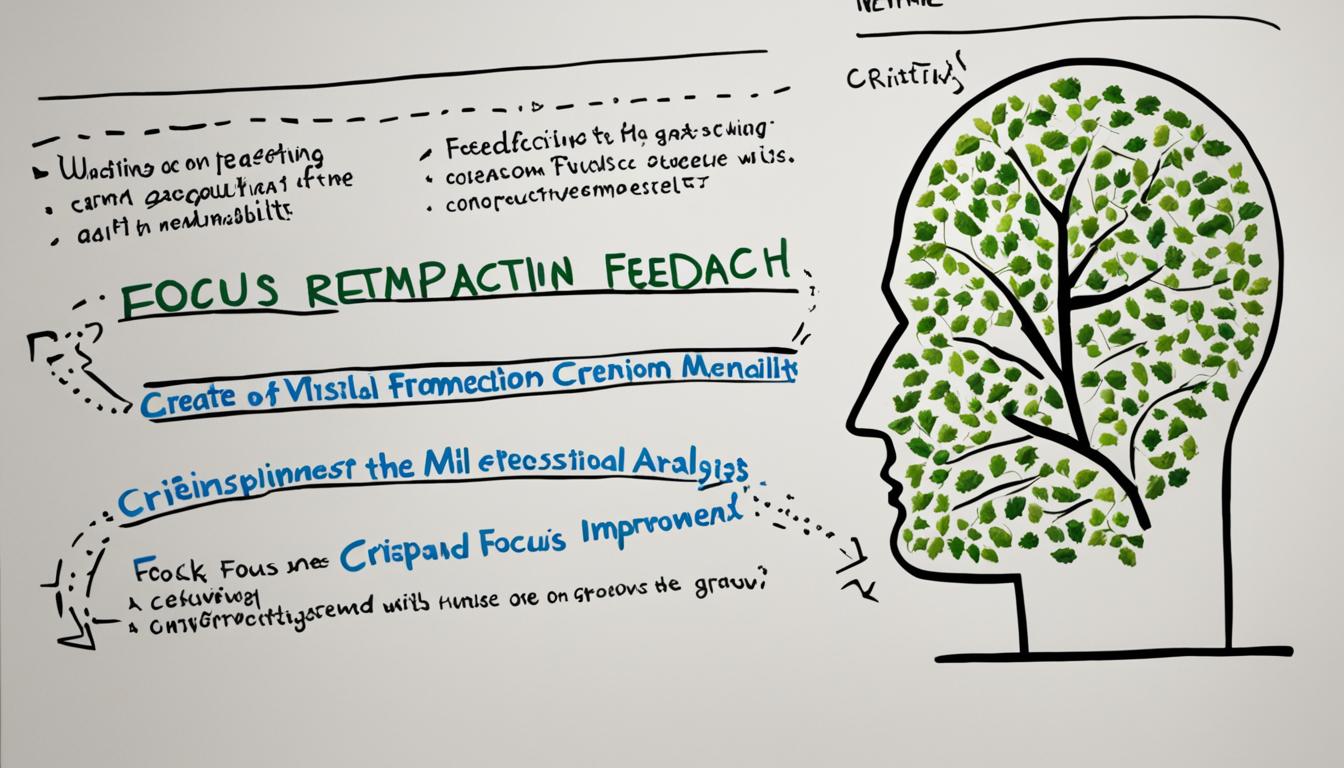Welcome to our comprehensive guide on building mental toughness in golf. As avid golfers ourselves, we understand the importance of mental strength in excelling on the course. Whether you’re a beginner or a seasoned player, developing a resilient mindset can make all the difference in your performance.
Building mental toughness involves honing your ability to access your best game regardless of the situation and handle the stress and pressure of competition. It’s about staying calm, focused, and confident, even when faced with challenges. Fortunately, mental toughness is a skill that can be cultivated and improved over time through various techniques and exercises.
In this article, we will debunk common myths about mental toughness in golf, explore strategies to separate your personal and player identities, discuss the power of a pre-shot routine, delve into the importance of staying present and practicing mindfulness, highlight the benefits of positive self-talk and visualization, emphasize the role of physical fitness in mental toughness, and provide key takeaways to help you enhance your mental game.
Key Takeaways:
- Building mental toughness is crucial for success in golf.
- Mental toughness can be developed through techniques and exercises.
- Debunk the myths surrounding mental toughness in golf.
- Separate your personal and player identities to strengthen your mental game.
- Implement a pre-shot routine for improved focus and consistency.
Debunking Myths about Mental Toughness in Golf
Contrary to popular belief, mental toughness is not something you are born with – it can be learned. It does not require you to act cocky or unfriendly, and it is not dependent on feeling good about your game on a particular day. Mental toughness is about controlling your thoughts and self-talk, adopting positive body language, and eliciting positive emotions that lead to positive physical reactions.
“Mental toughness is not a personality trait; it is a skill that can be developed with practice and training.”
Developing resilience in golf is key to building mental toughness. It allows you to bounce back from setbacks and challenges, maintaining focus and composure throughout the game. By enhancing your focus on the golf course, you can channel your energy into making strategic decisions and executing precise shots.
The first step towards developing mental toughness is to cultivate a positive mindset. This involves recognizing and challenging negative thoughts, replacing them with positive affirmations, and focusing on the present moment rather than dwelling on past mistakes or future outcomes.
To enhance focus on the golf course, it’s important to establish pre-shot routines that help you stay in the zone. These routines can include deep breathing exercises, visualization techniques, and physical cues that trigger a state of concentration and confidence.
Remember, mental toughness is not about being emotionless or suppressing your feelings. It’s about acknowledging your emotions, but not letting them dictate your performance. By developing resilience and enhancing focus, you can strengthen your mental game and unlock your full potential on the golf course.
Myths about Mental Toughness in Golf:
- Mental toughness is a personality trait.
- Mental toughness requires arrogance or unfriendliness.
- Mental toughness is dependent on feeling good about your game on a particular day.
Separating You the Person from You the Player
Building mental toughness in golf requires the ability to separate your identity as a person from your identity as a player. This distinction plays a crucial role in improving confidence and adopting effective mental game strategies.
When you step onto the golf course, it’s essential to “act yourself” into the persona of a champion, regardless of how you feel about your game that day. Great athletes have the ability to access their “player-self” regardless of their emotions, allowing them to perform at their best under any circumstances.
One effective technique for separating yourself from your player identity is adopting confident body language. By standing tall, making eye contact, and walking with purpose, you trigger positive emotional responses within yourself. This, in turn, boosts your confidence and mental resilience, helping you overcome challenges and setbacks on the course.
Confidence comes from within. By carrying yourself with confidence, you’re sending a message to your mind and body that you are ready to take on any challenge that comes your way.
Additionally, embracing the mindset of a champion involves reframing your thoughts and self-talk. Instead of doubting yourself or focusing on negative aspects of your game, practice positive affirmations and replace any self-limiting beliefs with empowering statements.
By consciously separating yourself the person from yourself the player, and by adopting confident body language and positive self-talk, you can cultivate the mental game strategies necessary to improve confidence in golf and enhance your overall performance on the course.

Example
Imagine you just hit a wayward shot that landed in the rough. Instead of letting frustration and negative thoughts take over, separate yourself from the mistake and focus on the next shot. Take a deep breath, visualize the shot you want to hit, and maintain a confident demeanor as you approach the ball. By adopting this mindset, you give yourself the best chance of executing a successful shot and maintaining your mental composure throughout the round.
The Power of a Pre-Shot Routine
One of the most effective ways to develop mental toughness in golf is by implementing a pre-shot routine. This routine serves as a mental and physical preparation before each shot, helping golfers overcome pressure and perform at their best. By incorporating specific exercises into the routine, golfers can cultivate a focused mindset and maintain a consistent swing.
Deep Breathing and Visualization
Deep breathing is a foundational exercise that helps golfers calm their nerves and center their focus. Taking slow, deep breaths before each shot oxygenates the body and relaxes the mind, creating a sense of calm and clarity. Alongside deep breathing, visualization is key to building mental toughness. By imagining successful shots and visualizing the desired outcome, golfers can boost their confidence and create a positive mindset for the upcoming shot.
Aligning the Clubface and Taking Practice Swings
Proper alignment is essential for consistent and accurate shots. Incorporating clubface alignment into the pre-shot routine allows golfers to set up for success, positioning themselves for the desired ball flight. Additionally, taking a few practice swings helps golfers find their rhythm and establish muscle memory, ensuring a smooth and controlled swing when it’s time to hit the ball.
By consistently implementing a pre-shot routine that includes deep breathing, visualization, aligning the clubface, and taking practice swings, golfers can enhance their mental toughness on the course. This routine helps golfers calm their nerves, focus their minds, and maintain a consistent swing, even in high-pressure situations.
| Benefits of a Pre-Shot Routine |
|---|
| 1. Calms nerves and reduces anxiety |
| 2. Enhances focus and concentration |
| 3. Promotes a consistent swing |
| 4. Builds mental resilience under pressure |
| 5. Increases confidence and belief in abilities |
Staying Present and Practicing Mindfulness
On the golf course, staying present in the moment is crucial for maintaining focus and confidence. It’s all too easy to get caught up in the future, thinking about the upcoming shots, or dwelling on past mistakes. But mindfulness can help golfers stay focused and calm, even in high-pressure situations.
Practicing mindfulness involves being fully aware of the present moment, without judgement or attachment. It allows us to quiet the noise in our minds and concentrate on the task at hand. One effective way to bring mindfulness to your game is by taking deep breaths before each shot. This simple act helps bring your attention to the present moment and center yourself.
Another technique is to focus on physical sensations. Pay attention to the feeling of the club in your hands, the sound of the ball coming off the clubface, and the sensation of your body moving through the swing. By anchoring yourself in these physical sensations, you can prevent distractions and stay fully engaged in the present moment.
“Mindfulness is the key to unlocking our full potential on the golf course. It allows us to let go of worries, doubts, and fears, and instead, focus on the task at hand with clarity and confidence.”
Incorporating mindfulness into your golf routine may require practice and patience, but the benefits are worth it. By staying present, you can maintain focus, make better decisions, and perform at your best. So take a moment, breathe deeply, and embrace the power of mindfulness on the golf course.

The Benefits of Mindfulness for Golfers
- Enhanced focus and concentration
- Reduced stress and anxiety
- Improved decision-making
- Increased confidence and self-belief
- Better control over emotions and reactions
By practicing mindfulness, golfers can tap into these benefits and unlock their full potential on the course.
The Power of Positive Self-Talk and Visualization
Positive self-talk and visualization are powerful strategies that can significantly improve mental toughness and boost confidence in golf. Instead of dwelling on a bad shot and criticizing oneself, adopting positive self-talk enables golfers to reframe their mindset and maintain focus during the game. By using encouraging statements, such as “I can do this” or “I am capable of achieving my goals,” golfers cultivate a sense of belief and resilience, enhancing their overall performance on the course.
Visualization, on the other hand, involves mentally rehearsing successful shots and imagining favorable outcomes. By vividly visualizing each swing, putt, and shot, golfers activate the same neural pathways in the brain that are engaged during actual physical practice. This technique not only reinforces muscle memory but also strengthens the golfer’s belief in their abilities. Visualizing successful shots promotes confidence, reduces anxiety, and optimizes performance, ultimately leading to improved results on the course.
“Visualization is daydreaming with a purpose.”
When combined, positive self-talk and visualization work synergistically to create a positive and focused mindset. By consistently adopting these mental techniques, golfers can cultivate mental toughness, improve their confidence, and elevate their performance on the golf course.
Visualization Exercise: Picture Yourself Succeeding
To enhance your visualization skills, try the following exercise:
- Find a quiet and comfortable place where you won’t be disturbed.
- Close your eyes and take a few deep breaths to relax your body and clear your mind.
- Begin visualizing yourself on the golf course, focusing on specific holes or shots.
- Imagine each swing and shot with great detail – the sound of the club connecting with the ball, the trajectory, and the satisfying feeling of a successful shot.
- Engage all your senses during the visualization process, including the sights, sounds, and physical sensations.
- Visualize yourself confidently executing each shot and achieving your desired results.
- Repeat this exercise regularly to reinforce positive mental imagery and strengthen your belief in your abilities.
By incorporating positive self-talk and visualization into your practice routine, you can develop mental toughness, enhance your confidence, and maximize your potential as a golfer.
| Benefits of Positive Self-Talk and Visualization | Techniques |
|---|---|
| 1. Boosts confidence | Positive self-talk, visualization |
| 2. Enhances focus | Positive self-talk, visualization |
| 3. Improves belief in abilities | Positive self-talk, visualization |
| 4. Reduces anxiety | Positive self-talk, visualization |
| 5. Reinforces muscle memory | Visualization |
Physical Fitness for Mental Toughness
When it comes to building mental toughness in golf, physical fitness is a crucial ingredient. Regular exercise not only benefits your physical health but also has a positive impact on your mental well-being. Engaging in mental strength exercises for golfers can enhance focus on the golf course and improve your overall game.
Physical activity, such as cardio workouts, strength training, and flexibility exercises, releases endorphins in the body. These “feel-good” chemicals boost your mood, increase energy levels, and reduce stress and anxiety. By incorporating exercise into your routine, you can experience these mental health benefits that directly impact your performance on the course.
Improved focus is a significant advantage of physical fitness for golfers. When you exercise regularly, your brain receives better blood flow, oxygenation, and nutrient supply, promoting optimal cognitive function. This enhanced focus allows you to stay in the present moment, concentrate on each shot, and make strategic decisions with a clear mind.
Increased confidence is another benefit of physical fitness for mental toughness in golf. As you engage in regular exercise, you build strength, endurance, and agility, which positively affects your self-perception as an athlete. The physical improvements translate into greater self-belief and a heightened sense of confidence on the golf course.
Furthermore, physical fitness contributes to your resilience on the course. Regular exercise strengthens your body, making it more resilient to the physical demands of golf. It also enhances your ability to handle fatigue and recover quickly between shots. With a stronger body, you can navigate challenging courses and weather conditions with ease, staying mentally tough throughout the round.
“Physical fitness is not only one of the most important keys to a healthy body but also the basis of dynamic and creative intellectual activity.” – John F. Kennedy
By prioritizing physical fitness and incorporating mental strength exercises into your routine, you can enhance your focus on the golf course and build mental toughness. Remember, a healthy body and a strong mind go hand in hand when it comes to performing at your best on the links.
Conclusion
Building mental toughness is essential for golfers who want to elevate their game. It allows us to overcome pressure, improve focus, and enhance confidence on the golf course. By incorporating various mental game strategies, golfers can strengthen their mental resilience and perform at their best.
One effective strategy is to develop a pre-shot routine. By implementing consistent breathing exercises, visualization techniques, and precise movements, golfers can calm their nerves, sharpen their focus, and maintain a consistent swing. This helps them handle pressure situations with composure.
Positive self-talk and visualization also play a significant role in building mental toughness. Rather than dwelling on mistakes, reinforcing positive thoughts and visualizing successful shots boost confidence and maintain a positive mindset. This can positively impact our performance and results.
Furthermore, practicing mindfulness and staying present in the moment are powerful tools for enhancing mental strength. By taking deep breaths and focusing on the physical sensations during each shot, golfers can stay focused, ward off distractions, and maintain a calm and composed demeanor.
In addition to these mental game strategies, physical fitness is paramount for mental toughness in golf. Regular exercise releases endorphins, improves mood and energy levels, and reduces stress and anxiety. By incorporating physical fitness into our routines, we can improve our mental and physical health, leading to improved focus, confidence, and resilience on the golf course.
By utilizing these mental game strategies and prioritizing physical fitness, golfers can develop the mental toughness required to succeed. So let’s focus our minds, strengthen our bodies, and unleash our true potential on the course.
FAQ
How can building mental toughness benefit my golf game?
Building mental toughness can help you access your best game regardless of the situation and handle the stress of competition. It allows you to control your thoughts and self-talk, adopt positive body language, and elicit positive emotions that lead to positive physical reactions.
Can mental toughness be learned?
Yes, mental toughness is not something you are born with – it can be learned. It does not require you to act cocky or unfriendly, and it is not dependent on feeling good about your game on a particular day.
How do I separate my identity as a person from my identity as a player?
Separating your identity as a person from your identity as a player is essential for building mental toughness. It allows you to “act yourself” into the persona of a champion, no matter how you feel about your game that day. Adopting confident body language triggers positive emotional responses and boosts confidence and mental resilience.
What is a pre-shot routine and why is it important?
A pre-shot routine is a key component of mental toughness in golf. It includes deep breathing, visualization, aligning the clubface, and taking practice swings. By consistently implementing a pre-shot routine, golfers can calm their nerves, focus their minds, and maintain a consistent swing. This helps them handle pressure situations and perform at their best.
How can I stay present and maintain focus on the golf course?
Staying present in the moment is crucial for maintaining focus and confidence on the golf course. Practicing mindfulness can help golfers stay focused and calm, even in high-pressure situations. Taking deep breaths before each shot and focusing on physical sensations can promote presence and prevent distractions.
How can positive self-talk and visualization help improve my mental toughness in golf?
Positive self-talk and visualization are powerful tools for building mental toughness in golf. Using positive self-talk boosts confidence and helps you stay focused. Visualization allows you to imagine successful shots and outcomes, enhancing your belief in your abilities. These techniques help you maintain a positive mindset and perform at your best.
How does physical fitness contribute to mental toughness in golf?
Physical fitness plays a significant role in building mental toughness in golf. Regular exercise releases endorphins, boosts mood and energy levels, and reduces stress and anxiety. Incorporating exercise into your routine can improve mental and physical health, leading to improved focus, confidence, and resilience on the course.
Why is building mental toughness important for golfers?
Building mental toughness is essential for golfers who want to elevate their game. By developing resilience, enhancing focus, and improving confidence, golfers can overcome pressure and perform at their best. Utilizing techniques such as a pre-shot routine, positive self-talk, visualization, and mindfulness can help golfers strengthen their mental game. Additionally, maintaining physical fitness contributes to mental toughness. By incorporating these strategies, golfers can build the mental resilience needed to excel on the course.



